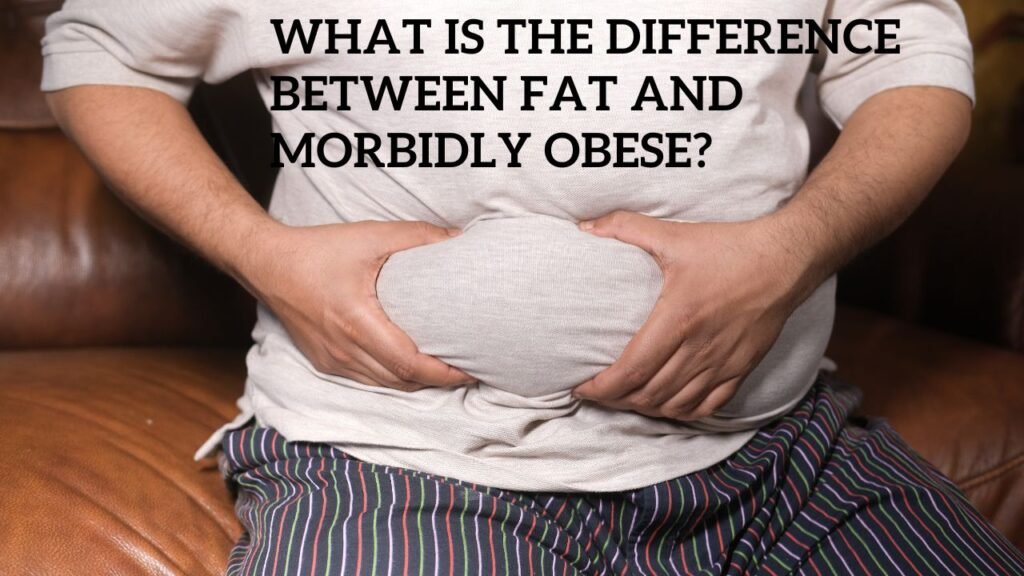What is Morbid Obesity?
Morbid obesity, often called severe obesity, is a complicated medical issue marked by an extremely high body weight that can lead to serious health risks, mobility challenges, and a decline in overall well-being.
This condition is more severe than simply being overweight or moderately obese, and is linked to significant health concerns that often necessitate medical treatment.
Class III obesity, previously referred to as morbid obesity, is a chronic disease where an individual has a body mass index (BMI) of 40 or above, or a BMI of 35 or higher accompanied by obesity-related health issues.
What qualifies as morbid obesity?
Morbid obesity, commonly known as class III obesity, is a serious health condition defined by a body mass index (BMI) of 40 or above. It can also be diagnosed in individuals with a BMI of 35 or higher if they experience significant obesity-related health problems such as type 2 diabetes, hypertension, or severe sleep apnea. This degree of obesity significantly increases the risk of chronic diseases and can greatly impact both quality of life and life expectancy.
What is the difference between fat and morbidly obese?
The word “fat” is a general description of people with excess body fat and does not necessarily refer to any particular medical condition. In contrast, “morbid obesity” is a medical term that refers to the specific type of obesity associated with a BMI of 40 or higher (or a BMI ≥ 35 with health problems). While obesity does not have a direct impact on health, obesity poses serious health risks and often requires medical intervention.

What are the 4 types of obesity?
Obesity can be divided into four basic types based on different causative factors:
- Diet-related obesity: It is mainly caused by overeating and poor eating habits.
- Obesity: It is related to inherited genetic factors that predispose a person to gain weight.
- Stress-related obesity: It is triggered by stress and emotional eating, in which people consume more calories to cope with stress.
- Physical inactivity-related obesity: It results from a sedentary lifestyle, where calorie intake exceeds energy expenditure.
Impact of morbid obesity
Obesity has a major impact on physical health, increasing the risk of chronic diseases such as diabetes, heart disease and high blood pressure. It can also lead to mobility problems, joint pain and sleep apnea. Psychologically, they often experience low self-esteem, depression and social stigma. It can also shorten life expectancy and significantly reduce daily activities and quality of life.
Physical Health Risks:
- Higher likelihood of developing chronic conditions, including type 2 diabetes, hypertension, and heart disease.
- Leads to joint and mobility issues, such as arthritis and back pain.
- Elevated risk of specific cancers, including breast cancer, colon cancer, and liver disease.
- Greater chance of experiencing respiratory issues, such as sleep apnea and asthma.
Mental Health Challenges:
- Severe depression, anxiety, and low self-esteem.
- Social isolation and discrimination can lead to emotional problems and isolation.

Reduced Quality of Life:
- Difficulty performing daily activities due to physical limitations.
- Fatigue and lack of energy often affect productivity and overall health.
Impact on Life Expectancy:
- Life expectancy is shortened due to obesity-related complications.
Economic and Healthcare Burden:
- Increased healthcare costs for managing obesity-related diseases.
- Loss of income and employment due to poor health.
Impact on Reproductive Health:
- Fertility problems and problems during pregnancy in women.
- Erectile dysfunction and hormonal imbalances in men.
What Causes Morbid Obesity?
When you eat, your body converts the calories from food into energy. Even at rest, your body requires calories to maintain essential functions like keeping your heart beating and digesting food. If those calories aren’t utilized, your body will store them as fat.
When you consistently consume more calories than your body can burn through daily activities and exercise, it leads to fat storage. This excess fat can result in obesity.
Certain medications, like antidepressants, may lead to weight gain. Additionally, medical conditions such as hypothyroidism can contribute to weight gain, but they can be managed to help prevent obesity.
Preventing Morbid Obesity
Preventing obesity involves maintaining overall health and taking proactive measures. A balanced diet that includes plenty of fruits, vegetables, lean proteins, and whole grains is essential to avoid overeating and ensure proper nutrition.
Engaging in regular physical activity, such as aerobic exercises and strength training, is crucial for burning calories and toning the body. Keeping track of your weight and being aware of early signs of weight gain can empower you to take timely action.
Managing stress through techniques like mindfulness, meditation, or therapy is also vital, as stress can often trigger overeating or emotional eating. Adequate sleep plays a significant role as well, since insufficient rest has been associated with weight gain and hormonal disruptions.
Educating yourself about healthy lifestyle choices and utilizing resources like nutritional counseling and exercise programs can support long-term weight management.
For individuals at higher risk due to genetic factors or health conditions, regular checkups and professional advice from healthcare providers are key to preventing obesity.

Dr. Usman is a medical content reviewer with 12+ years of experience in healthcare research and patient education. He specializes in evidence-based health information, medications, and chronic health topics. His work is based on trusted medical sources and current clinical guidelines to ensure accuracy, transparency, and reliability. Content reviewed by Dr. Usman is for educational purposes and does not replace professional medical advice.
